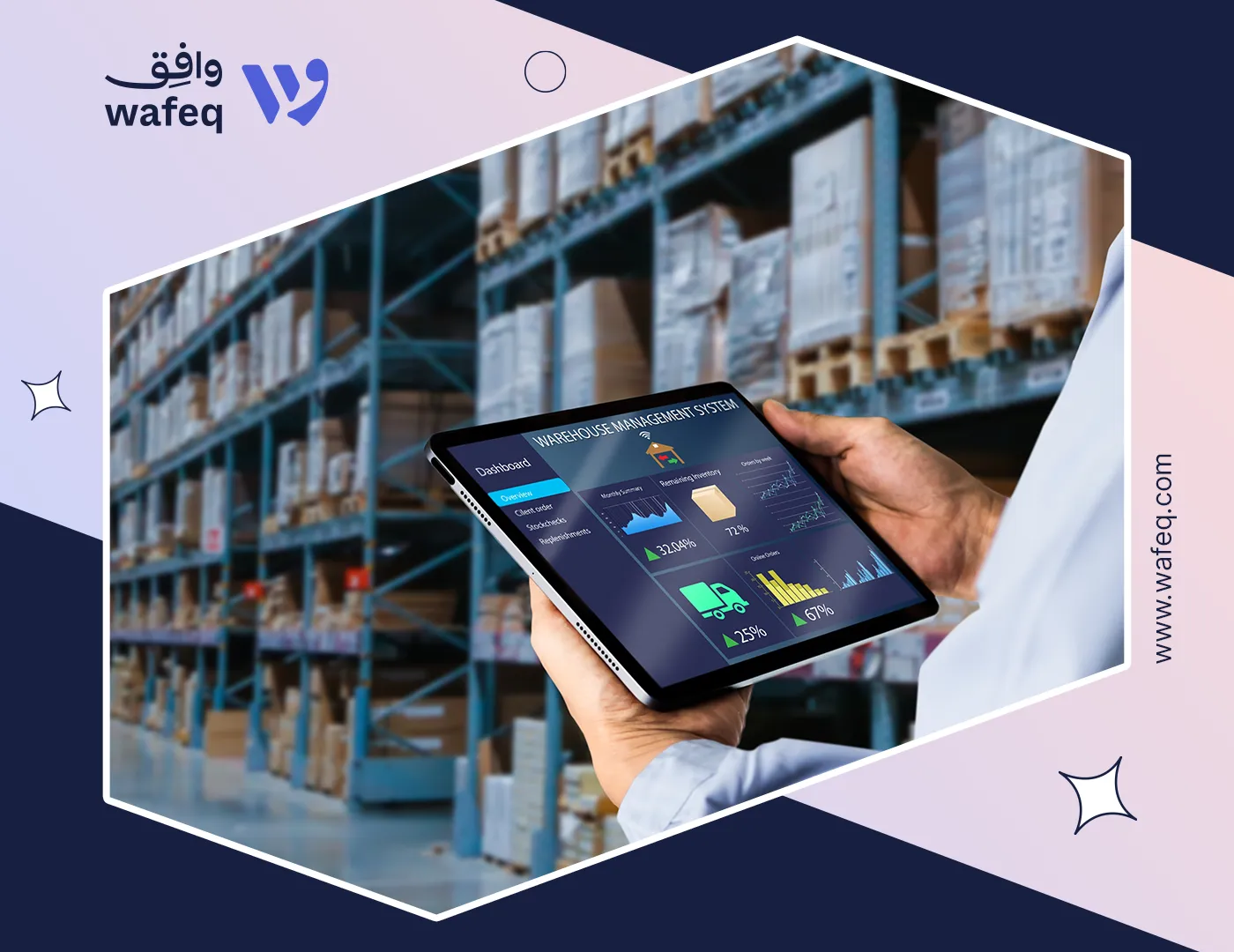Why Xero Falls Short for UAE Businesses (And What to Use Instead)
 في الإمارات؟_ نظرة تحليلية على مدى صلاحيته للشركات الصغيرة والمتوسطة.png?alt=media)
In recent years, the United Arab Emirates has taken major steps to formalize and regulate its financial ecosystem, introducing frameworks like VAT, corporate tax, and mandatory e-invoicing. These changes have increased the demand for accounting software that offers robust functionality and ensures complete compliance with local regulations. Many business owners and accountants in the UAE naturally look for well-known global tools like Xero. However, the key question remains: Is Xero suited for businesses operating under the UAE’s regulatory framework, especially for small and medium-sized enterprises (SMEs)?
Thinking of Using Xero in the UAE? Read This First
Xero is a globally recognized accounting platform, particularly popular in markets like the UK, Australia, and New Zealand. In the UAE, however, its adoption is relatively limited, especially among small and medium-sized enterprises (SMEs). While some companies may use Xero to manage basic bookkeeping tasks, the platform was not built with UAE-specific regulatory requirements in mind.
Xero doesn't appear to have a dedicated regional strategy for the UAE, nor prioritize deep integration with local compliance systems such as the Federal Tax Authority’s e-invoicing mandates. There is also a lack of active investment in Arabic language support, local customer service, or region-specific features like corporate tax handling or government-compliant invoice templates.
In practical terms, SMEs using Xero in the UAE often rely on workarounds, third-party plugins, or manual adjustments to meet legal requirements, adding complexity, risk, and inefficiency to their operations.
In practical terms, SMEs using Xero in the UAE often rely on workarounds, third-party plugins, or manual adjustments to meet legal requirements, adding complexity, risk, and inefficiency to their operations.
Compliance with UAE Regulations: Where Xero Falls Short?
In the UAE, accounting is no longer just about recording transactions; it's about staying fully aligned with government-mandated regulations such as VAT, corporate tax and most recently, e-invoicing. These requirements are not optional, and failure to comply can result in penalties, audits, and reputational damage.
- This is where Xero falls short. Unlike regionally developed platforms, Xero does not offer native support for FTA Accredited e-invoicing. Users must rely on third-party integrations, if available at all, or manually generate invoice files that meet format and submission requirements. This process is not only inefficient but also prone to human error.
- Moreover, Xero’s VAT reporting templates are not specifically tailored to the Federal Tax Authority’s standards. The system does not automatically validate TRNs (Tax Registration Numbers) or ensure that invoices contain all required fields in the mandated Arabic-English bilingual format.
- In contrast, businesses using Xero often need to build custom workarounds to meet just the minimum compliance thresholds. Something that local platforms like Wafeq provide out of the box.
Why Global Solutions Often Miss the Needs of UAE SMEs?
While global accounting platforms like Xero are well-designed for mature Western markets, they often lack the flexibility and localization necessary to serve small and medium-sized enterprises (SMEs) in the UAE. These solutions are usually developed with a one-size-fits-all mindset, assuming uniform tax laws, languages, and workflows, which don't reflect the operational realities in the region.
Businesses in the UAE must issue:
- Bilingual invoices.
- Navigate industry-specific compliance requirements.
- Manage transactions that span multiple currencies and jurisdictions.
- Complying with Local nuances, such as integrating with government platforms like the FTA e-invoicing portal or formatting invoices according to official guidelines, which are rarely addressed by international systems.
Moreover, support from global vendors is typically limited to English, and response times may not align with Gulf business hours. Training materials and help documentation are also rarely available in Arabic, creating a barrier for teams that rely on native-language communication.
As a result, UAE SMEs that use foreign tools often find adapting their operations to fit the software, instead of the software adapting to local business needs.
Why Wafeq Outperforms Xero in the UAE Market
As the accounting software landscape in the UAE continues to evolve, businesses are increasingly looking for solutions that not only handle standard accounting functions but also address the specific compliance, automation, and usability needs of the region. While Xero is a globally recognized platform, Wafeq has emerged as the smarter choice for UAE businesses because it is built with regional compliance, local regulations, and business workflows in mind. Here’s why Wafeq is better than Xero for companies in the UAE:
1. Multi-Window Functionality for Productivity Unlike Xero, Wafeq allows users to open multiple windows simultaneously. This small but powerful feature enhances productivity for accountants and business owners who need to work across invoices, reports, and journals at the same time without losing context.
2. Built-In ZATCA & FTA Compliance Xero is not natively built for the GCC tax framework, meaning additional customization or third-party add-ons are often required. Wafeq, on the other hand, is designed from the ground up for compliance:
- UAE VAT compliance with FTA-approved VAT reporting.
- Corporate Tax compliance with ready-to-file CT reports.
- ZATCA-compliant e-invoicing (Saudi Arabia), ensuring businesses meet Phase 2 requirements.
This gives Wafeq a huge advantage for businesses operating across the GCC.
This gives Wafeq a huge advantage for businesses operating across the GCC.
3. Advanced User Roles and Permissions While Xero provides basic access control, Wafeq offers a more granular selection of roles and permissions. Businesses in the UAE often have diverse teams—owners, accountants, external auditors, and finance managers—who require different access levels. Wafeq ensures full control over visibility and actions. 4. Client Subscription Visibility for Accounting Firms Accounting and auditing firms using Wafeq benefit from full visibility of all their clients’ subscriptions—whether the client pays directly or the accountant covers the subscription. This feature streamlines client management, billing, and firm-wide oversight, which Xero lacks. 5. Multi-Currency by Default Multi-currency support is not optional in a globalized UAE market where businesses deal in AED, USD, EUR, SAR, and more. Wafeq includes multi-currency across all modules—manual journals, invoices, and bills—without extra charges. Xero often requires advanced plans or workarounds for multi-currency. 6. Interactive Dashboard with Graphs Wafeq provides a real-time, visually engaging dashboard with graphs and performance indicators. This is particularly useful for SMEs and decision-makers who need quick insights into cash flow, revenues, and expenses, without deep-diving into reports every time. 7. Consolidation for Multi-Entity Businesses Xero falls short when handling multi-entity businesses in the UAE, often requiring third-party tools for consolidation. Wafeq offers built-in consolidation, allowing holding companies and groups to manage financials across multiple entities seamlessly.
8. Comprehensive Tax Reporting (VAT & Corporate Tax) Wafeq simplifies compliance with ready-made reports:
- VAT Report aligned with UAE FTA standards.
- Corporate Tax Report showing net profit, exempt income, non-deductible expenses, and taxable income—all exportable in English and Arabic.
These features make filing stress-free, while Xero requires manual adjustments or integrations for CT compliance.
9. Flexible Invoicing Options Wafeq provides invoice formats tailored to the UAE and GCC market:
- Standard Invoices
- Cash Invoices
- Delivery Invoices
- Proforma Invoices
- Send invoices directly from the platform via WhatsApp.
Xero does not natively support such localized invoicing needs.
10. Automation in Bills & Expenses Wafeq includes Auto OCR in Bills, which extracts data automatically from uploaded invoices and receipts. This reduces manual entry and errors—features that are not as seamless in Xero. 11. Payroll & Projects While Xero relies heavily on third-party add-ons for payroll and project tracking, Wafeq offers:
- Integrated Payroll Management (including local compliance needs).
- Project Tracking with budgeting and expense allocation.
This makes Wafeq a one-stop solution for businesses without additional subscriptions.
This makes Wafeq a one-stop solution for businesses without additional subscriptions.
12. Bank Integrations with UAE Banks Wafeq integrates directly with key UAE banks:
- Wio Bank (payment integration)
- HSBC UAE (payment integration)
- Emirates NBD (ENBD)
- Abu Dhabi Commercial Bank (ADCB)
These integrations allow direct payment execution and reconciliation. Xero does not offer such deep connections with regional banks.
13. Future-Proof with E-Invoicing E-invoicing is a growing regulatory requirement across the GCC. Wafeq already supports ZATCA e-invoicing in Saudi Arabia and is preparing e-invoicing capabilities for the UAE, ensuring businesses are always one step ahead of compliance changes.
Wafeq: A Purpose-Built Alternative for UAE Businesses
Unlike global solutions that attempt to serve all markets with a generic approach, Wafeq was built from the ground up to address the unique regulatory and operational needs of businesses in the UAE and the wider Gulf region. It is not just another accounting software، it is a compliance-first financial solution tailored for small and medium-sized enterprises.
Wafeq is fully aligned with the UAE's Federal Tax Authority (FTA) requirements, including seamless support for e-invoicing, VAT reporting, and corporate tax handling. The system automatically generates invoices in the required Arabic-English bilingual format, validates TRNs, and ensures every document meets FTA audit standards.
Beyond compliance, Wafeq supports features that are essential for local operations:
- Arabic and English interfaces for both users and documents.
- Multi-currency transactions with region-specific configurations.
- Customizable workflows for approvals, expense tracking, and purchase orders.
- Real-time support and local expertise.
With Wafeq, UAE businesses no longer necessarily rely on manual adjustments, plugins, or external consultants to stay compliant. Everything is built in and continuously updated to reflect the latest regulatory changes.
With Wafeq, UAE businesses no longer necessarily rely on manual adjustments, plugins, or external consultants to stay compliant. Everything is built in and continuously updated to reflect the latest regulatory changes.
Choosing the Right Solution: What UAE SMEs Should Consider
For small and medium-sized enterprises (SMEs) in the UAE, choosing the right accounting and compliance platform is not just a technical decision; it’s a strategic one. The chosen system must align with the legal framework and the practical realities of doing business in the Emirates. Here are the key factors SMEs should consider:
- Regulatory Compliance Does the platform support FTA-compliant e-invoicing, VAT reporting, and corporate tax features out of the box?
- Language Support Is the system fully bilingual in Arabic and English, for both the interface and invoices?
- Local Relevance Was the platform designed with Gulf-based businesses in mind, or is it a generic tool adapted from another market?
- Ease of Use and Support Are there local support teams available during Gulf working hours? Is help documentation available in Arabic?
- Scalability and Integration Can the platform grow with your business and integrate with other tools such as ERP systems, payroll, or banking?
Also Read: The New Corporate Tax System in the UAE and How Wafeq Automates Accounting
While Xero remains a well-known name in global accounting software, its relevance in the UAE market, especially for SMEs, is limited. The lack of full compliance with local regulations, the absence of Arabic language support, and minimal adaptation to regional business practices make it an impractical choice for companies operating in this environment.
In contrast, Wafeq offers a purpose-built solution tailored for the UAE’s regulatory and operational needs. From e-invoicing and VAT to corporate tax and bilingual invoicing, Wafeq empowers businesses to stay compliant, efficient, and ready to scale, all with local support and a deep understanding of the market.
The decision for SMEs in the UAE is clear: choose a system that understands your business, not one that asks you to adapt to it.
Experience seamless VAT, corporate tax, and FTA-compliant invoicing, with the accounting Wafeq program designed for UAE businesses like yours.
Experience seamless VAT, corporate tax, and FTA-compliant invoicing, with the accounting Wafeq program designed for UAE businesses like yours.



.png?alt=media)










